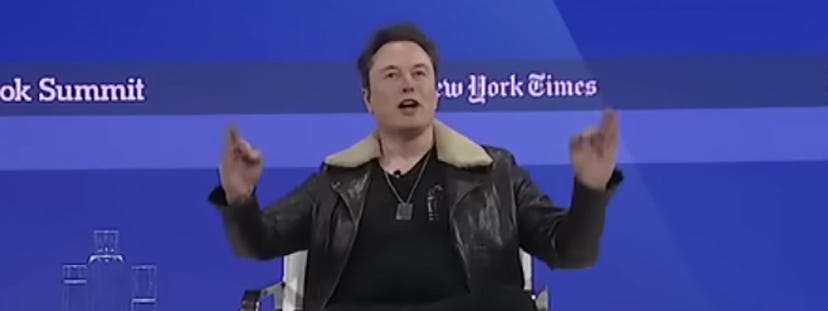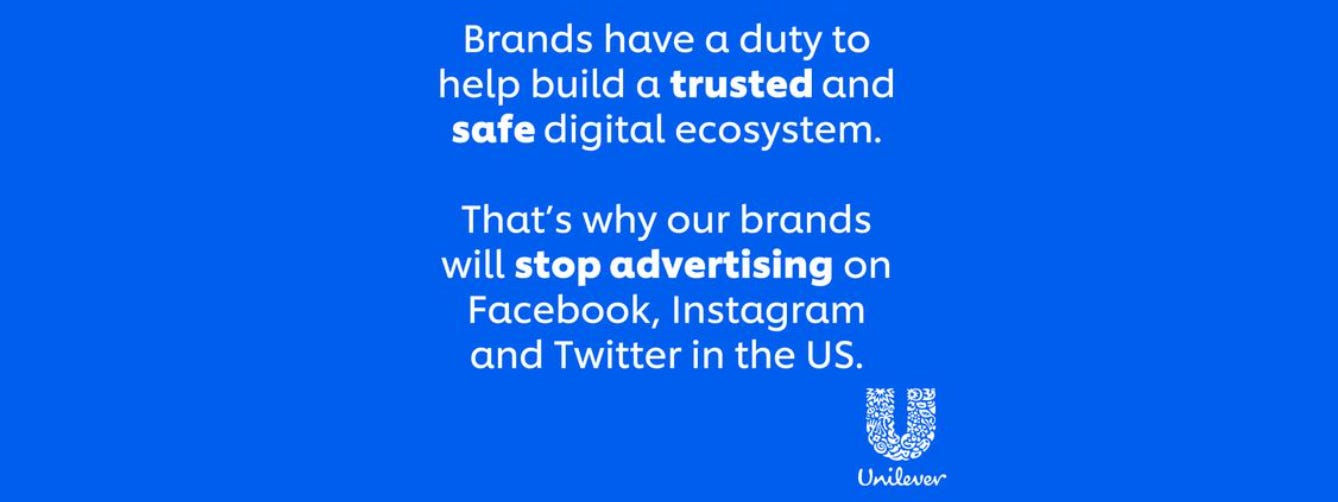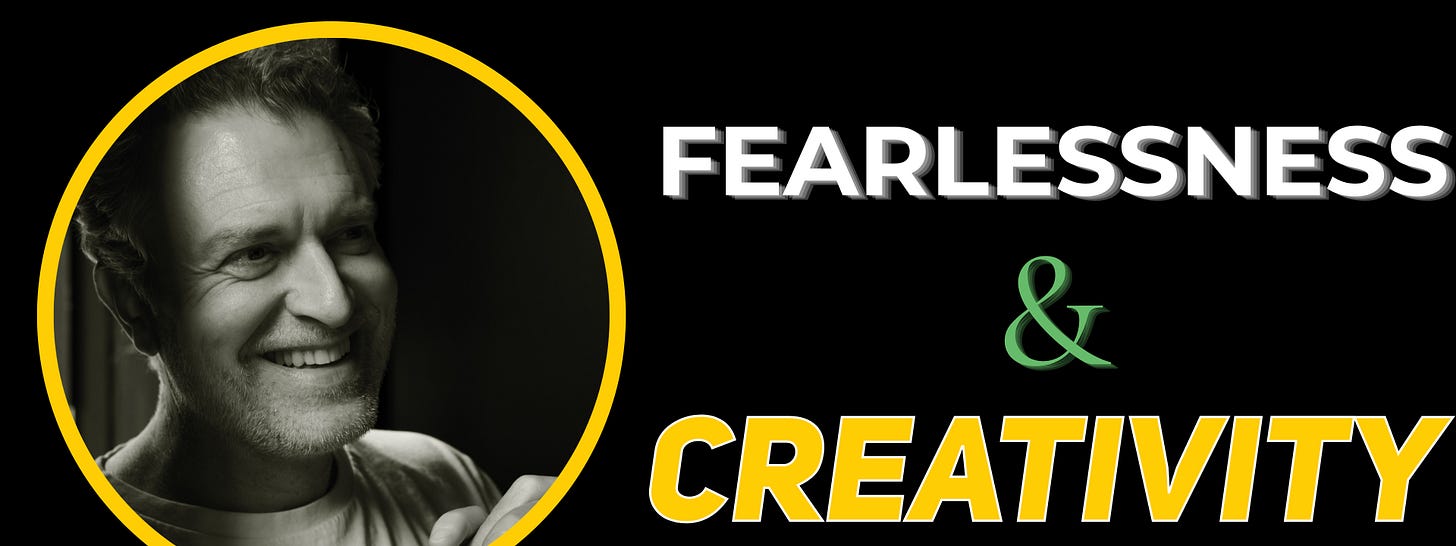Musk’s genius business model: coerce your clients!

Brand safety is the reason that GARM (Global Alliance for Responsible Media) existed. GARM was an advertising industry body run by the WFA (World Federation of Advertisers), an organization whose membership includes over 140 of the world's top brands and national advertiser associations in more than 60 markets.
Why am I using the past tense? Because last Friday the WFA decided to shutter GARM after it was sued by X/Twitter for unlawful conspiracy after advising its members to leave the platform.
Platforms such as X, Facebook, and YouTube have always strenuously insisted that they are not publishers like TV channels or newspapers because they don’t control the content they house, much like how phone companies are not responsible for the conversations that travel over their wires and waves. This stance was codified in Section 230 of the US Communications Decency Act of 1996 and has been used by internet companies ever since to protect them from lawsuits whenever malicious, false, or illegal content appears on their platforms.
You can like or loathe Section 230 but it certainly helped build the internet and social media that we know today. But as the Electronic Frontier Foundation notes, “When harmful speech takes place, it’s the speaker that should be held responsible, not the service that hosts the speech.” This sounds fine until 2024 comes around and the person sharing harmful speech also owns the service that hosts the speech.
Enter Elon Musk, a clearly troubled individual who bullies his children, bullies employees, bullies cities, bullies states, bullies ethnic groups, and now bullies his own customers. For a complete timeline (with screenshots) of his use of Twitter/X to say or amplify lies, misinformation, and hate, check out this piece on Rolling Stone.
If you’ve already concluded that Musk is a dangerous nut with a huge megaphone, you might be right. But now he has found a new way to defy both common sense and business logic by filing an antitrust lawsuit in Texas which alleges that corporations such as Unilever, Mars, and CVS unlawfully conspired to withhold “billions of dollars of advertising revenue” from X.
It’s almost nine months since Musk literally said “Go f**k yourself!” to advertisers who cut spending on his platform, adding, “That’s how I feel. Don’t advertise.” For some reason, he has now reversed his position completely. Does he understand how advertising works? Or what a conspiracy is? Or in fact, how a normal business operates?
Unilever already has a track record of protecting its brand against unsavory online environments, having stopped all US advertising on Twitter as well as Meta properties Facebook and Instagram as far back as 2020.

Musk’s beef is that Unilever is just one of many members of the WFA to have decided it’s better for their brands to invest their media dollars elsewhere than X. But Unilever USA’s president, Herrish Patel, explained why there’s no conspiracy in testimony before Congress last month:
“Unilever, and Unilever alone, controls our advertising spending. No platform has a right to our advertising dollar.”
Of course this is true. As one of the world’s largest consumer packaged goods companies and a publicly traded multinational corporation, Unilever has a duty to shareholders to protect its brands.
All brands want to create a positive impression among current or potential consumers. As I wrote in the intro to this newsletter in February, context is crucial when viewing a specific ad. We simply cannot help transferring meaning and emotion between different items that are presented in the same context. In other words, the purity of Dove soap is tainted when seen next to vile comments on X or Facebook.
This is why advertisers have fled the cesspool that X has become since Musk took over Twitter and rebranded it. This isn’t a boycott – which is an expression of protest – it’s simply a smart business move that protects a valuable corporate asset: the brand. British X users and politicians are also leaving the platform in droves after Musk retweeted a right-wing lie following anti-immigrant riots last week.
Musk’s tantrum and lawsuit should not come as a surprise. After all, Tesla didn’t advertise at all until 2022. Judging by his behavior, if anyone has a “mind virus” it’s the man who thinks that companies should be compelled to buy media on his platform. And the schadenfreude for those who are not Musk fanboys is that his actions are almost certain to drive more advertisers away from X while the lawsuit gets dismissed as frivolous.
When your business model is based on coercion, maybe it says more about the personality of the CEO than the business itself.
Skibidi Toilet flush with franchise money
If you haven’t heard of Skibidi Toilet, you either don’t have young children or are not an elementary school teacher. The YouTube video series featuring men’s heads that poke out of toilets and do battle with cybernetic weaponry was pulling in more views than Mr. Beast at one point.
Now creator Alexey Gerasimov has signed a movie and TV franchise deal with director Michael Bay and former Paramount president Adam Goodman, as reported in Variety. Skibidi Toilet is so popular with Gen Alpha that the phrase has been banned in schools across the world!
Indian influencers facing a content crackdown
A proposed Indian law that would classify social media creators as “digital news broadcasters” would require creators to register with the government, have their content pre-screened, and handle complaints at their own expense, with non-compliance potentially leading to criminal charges. The Rest of World website reports that over 785 Indian creators have sent a letter to the government seeking more transparency in the process of drafting the bill. According to Nikhil Pahwa, a digital rights activist, even Taylor Swift “will need to get her songs evaluated by a content evaluation committee in India” prior to release.
Highlighting a minority-owned business can boost sales
Research published this week in the Harvard Business Review highlights the benefits of promoting minority-owned businesses through labels and marketing initiatives. Yelp's introduction of a label for Black-owned businesses in 2020 led to a significant increase in online traffic and customer engagement, particularly in areas with lower racial bias. Similarly, Wayfair's 2023 campaign to spotlight Black designers saw increased web traffic. These findings suggest that such strategies can enhance social impact and economic outcomes for minority entrepreneurs, though their success depends on market characteristics and careful implementation.
Robot plays pretty impressive ping-pong
The Olympic Games may be over but apparently our robot overlords never take a break. The latest human activity to fall victim to artificial intelligence is table tennis. Researchers at Google Deepmind have published a paper outlining how they developed a robot that is able to compete against intermediate table tennis players.
The Google team noted that table tennis is “a valuable benchmark for advancing robotic capabilities, including high-speed motion, real-time precise and strategic decision making, system design and enabling direct competition with a human opponent.” The real question is whether machines will ever be able to outdo humans at breakdancing.
Bulletproof Entrepreneur interview with… me!
Something different for this issue’s 1Qi. Former 1Qi guest Chi Odogwu has a podcast called The Bulletproof Entrepreneur and he interviewed me last week on a whole range of subjects, including fearlessness and creativity.
Here’s the show description:
“In this episode of The Bulletproof Entrepreneur, we sit down with John Dutton, a creative brand strategist, writer, and author of the novel "2084." John shares his journey from studying film in England to becoming a successful multi-faceted entrepreneur in Montreal. He discusses the importance of fearlessness in pursuing opportunities, the value of embracing creativity in its broadest sense, and the benefits of diversifying one's professional pursuits. John challenges conventional wisdom about focusing on a single path, sharing how his success came from juggling multiple projects simultaneously.
John also offers a fresh perspective on measuring success, cautioning against an overemphasis on financial metrics. He advocates for a more holistic view of achievement that values personal growth, creativity, and social impact. In the face of advancing AI technology, John emphasizes the irreplaceable value of human connections and collaborative work. He leaves us with a powerful reminder that our true superpower as entrepreneurs lies in our ability to connect with others and work together effectively. This episode provides valuable insights for anyone looking to navigate the complex landscape of modern entrepreneurship while maintaining a focus on personal fulfillment and societal impact.”
If you want to watch the interview on YouTube, go here, and if you want to listen to the audio podcast, go here.
Genetically modified everything
If you’re somebody who buys organic bananas because you are opposed to genetically modified food, you should be aware of two things.
A) Bananageddon. This is the potential extinction of the Cavendish variety that we all eat. Why might it go extinct? Fungal infections that the banana plants cannot fight against because they are all asexual clones grown in monocultures.
B) Artificial intelligence models will soon produce novel proteins and other organic molecules that may help fight disease among humans and other species such as banana plants.
In other words, genetically modified foods might be unavoidable at some point in the future. One company, called EvolutionaryScale, has even developed a Large Language Model (LLM) called ESM3 that follows prompts to generate new proteins. Normally, LLMs are used for chatbots, but the company has found a way to replace the letters we use in our chats with letters that represent three-dimensional protein structures. As their website says, “If we could learn to read and write in the code of life it would make biology programmable. Trial and error would be replaced by logic, and painstaking experiments by simulation.” It’s complicated, but it’s explained here.

Basically, ESM3 enables the simulation of over 500 million years of evolution to generate protein models that nature hasn’t thought of. According to EvolutionaryScale, the reason AI is so much better than us mere mortals at creating new proteins is that, “biology is written in a language we don’t yet understand.”
If all of this bothers you, remember that none of us would exist without constant modification of the same organic molecules. Want some proof? We share about 40% of our DNA with… bananas!
The color of money

Everyone who works in, or adjacent to, design has heard of Pantone. But do you know the in-depth story behind the company that owns colors? In this episode of NPR podcast Planet Money we take a deep dive into the history and economics of color standardization, how one man cornered the commercial market for colors, and the day when Adobe users discovered that all their work had turned black.
Signs of the times
UK filmmaker Daniel McKee creates stunning rapid-fire animations of graphical elements from our modern world. Edited to high-energy music, each one will make your neurons go crazy for a couple of minutes. Check out this one, featuring traffic signs.
Did you enjoy this issue of Discomfort Zone? You can comment directly in the Substack app or drop me a line by emailing me at john@johnbdutton.com.
And why not connect with me on LinkedIn if you haven’t already?
Additional reporting by Diana Sia Yambaye.
Legal disclaimer: All images in this newsletter that are not the property of the author are used with permission or reproduced under the fair use provisions of the Canadian Copyright Act while giving appropriate credit.













